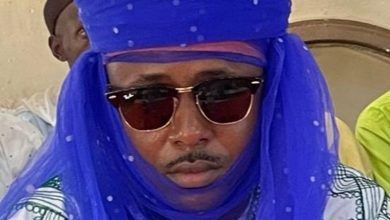DR Congo and Rwanda Sign Landmark Sovereignty Pact in Washington

In a rare display of diplomatic progress, the Democratic Republic of Congo and Rwanda have signed a historic agreement committing to respect each other’s sovereignty and chart a path toward peace, following years of escalating tensions and bloodshed in Central Africa.
The agreement, brokered in Washington and witnessed by U.S. Secretary of State Marco Rubio, was signed on Friday by the foreign ministers of both nations. It marks a pivotal step in efforts to resolve one of Africa’s most protracted and deadly conflicts, with both sides pledging to draft a comprehensive peace deal by May 2.
The backdrop to this breakthrough is a region in crisis. In recent months, M23 rebels — widely believed to be backed by Rwanda — have seized control of vast, mineral-rich territories in eastern DR Congo, triggering the displacement of hundreds of thousands and inflaming an already volatile humanitarian situation.
Desperate for international support after significant territorial losses, the Congolese government turned to Washington for assistance. In exchange, it offered access to its vast deposits of critical minerals — cobalt, coltan, and lithium — vital to the global tech and energy sectors.
While the agreement signals a fresh diplomatic thaw between Kinshasa and Kigali, reports of continued fighting in North Kivu province on Friday serve as a stark reminder of the challenges that lie ahead.
Still, the symbolism of the Washington talks — once unthinkable given the frosty ties between the two neighbors — has sparked cautious optimism. According to the agreement’s text, both nations anticipate substantial U.S.-facilitated investment from public and private entities as part of the peace-building framework.
Earlier this week, both the Congolese government and the M23 rebels issued rare statements of mutual commitment to peace, voicing support for a potential permanent ceasefire. Yet, the violence on the ground tells a different story.
Since January alone, officials in eastern Congo estimate that more than 7,000 people have been killed, as the M23’s bold offensive engulfed major cities, including Goma and Bukavu, prompting fears of an all-out regional war.
The DR Congo has repeatedly accused Rwanda of covertly arming and deploying troops to support M23 fighters — allegations backed by U.S. and UN findings but categorically denied by Kigali.
The path to peace remains steep, but Friday’s accord could prove to be a turning point — a rare glimmer of hope in a region long plagued by cycles of violence, mistrust, and resource-driven conflict.
As the world watches, the true test will be whether this promise of dialogue can hold against the harsh realities still unfolding on the ground.





